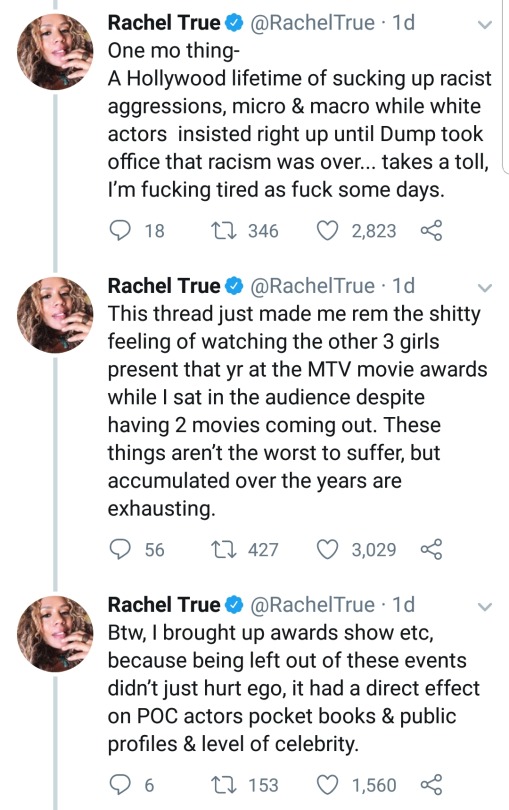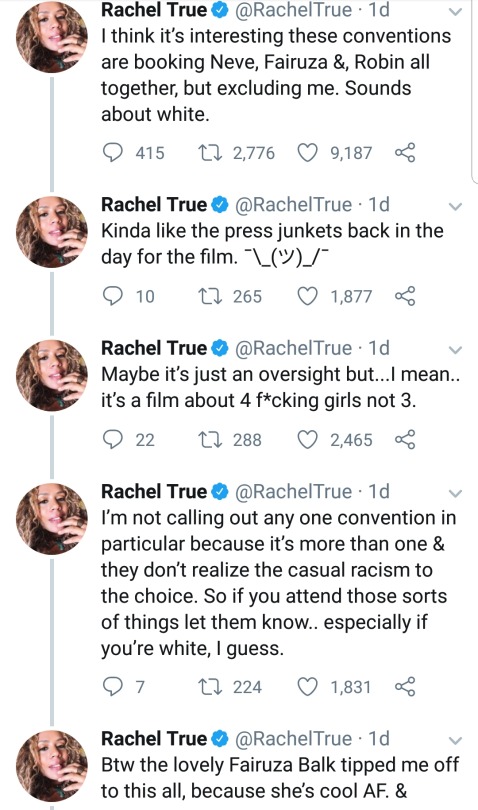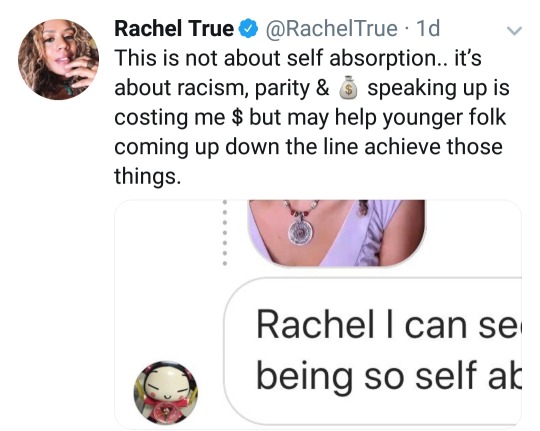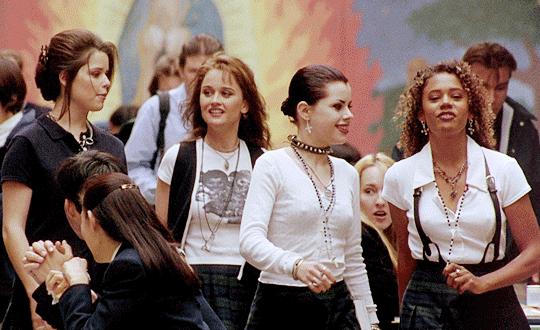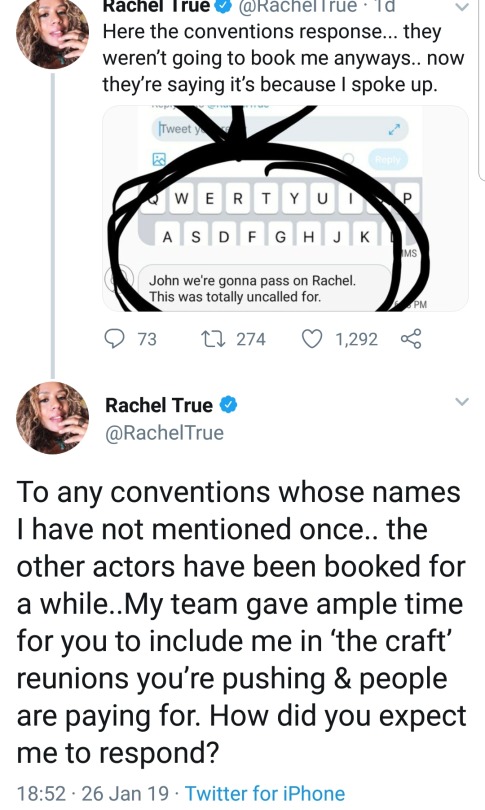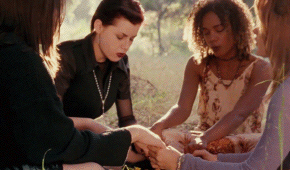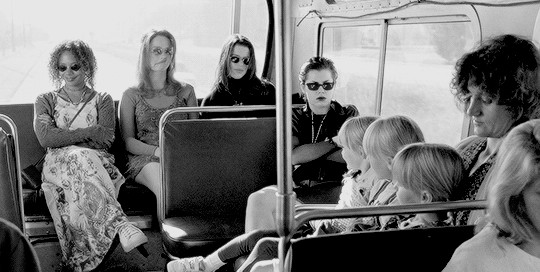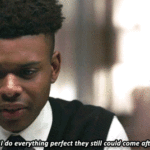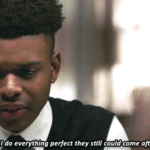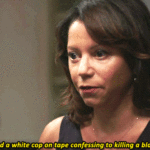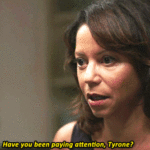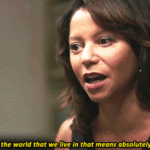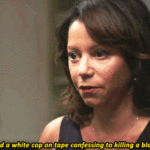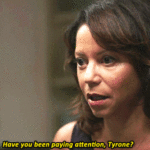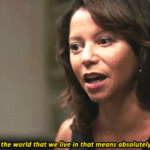Well, this gets into what I wanted to talk about with you. After Grey’s Anatomy, did you feel like you were getting the opportunities you wanted?
I’ve got to tell you, I work really hard to not think that way. And I have so much opportunity because I can say no, and I choose to say no. I took a lot of time to find the right project. So I’m interested in reframing what I know you’re asking me. Because wondering what if or why … being in the well-worn path of a belief system I don’t want to be in, I worked really, really hard to move myself out. Because it’s taken a long time to accept the reality of where we are. I know I’ve had an extraordinary path. But it doesn’t have to look like anyone else’s, you know?
And it can’t.
And it can’t. And it’s also about me believing that. So it’s just like “oh, so at a certain point in your career, you think A, B, C, or D is supposed to happen?” Thinking of it that way just causes me suffering. But being aligned to it to say, How do I stay creative? How do I still connect? How do I practice access? That you can do every day. Whether you’re on a set or not. And that is just preparation for when something actually does come that you’re fully prepared for. Does that make sense?
The only thing we can control is our actions and what motivates us. But also, shit’s hard. [Laughs.]
Yes, because you know what, not only is shit hard, it’s extremely unfair. And racism exists. Let’s start there. I felt it, and I have felt it deeply. And I’m extremely fortunate. So I’m not going to not say that it’s not there, because it is.
But it’s changing the mindset that being an actor of color, person of color, that you’re at a disadvantage in the creative life. That you don’t have opportunity. It’s all how you see the opportunity. And the clearer and deeper you get into what you really want, you just become a better artist. If that’s what you really want — becoming a better artist — does that include access? Does that include having 5 billion Instagram followers? I don’t know. That’s for you to decide. But if what you want is to connect, if what you want is to be a great artist, I think you can find your way. Even within this giant paradigm that a lot of times doesn’t include people who look like us.
Because we aren’t looking at each other face-to-face, I should tell you I’m Korean-American, and so this question of how you don’t allow racism to define you, or your work, is centrally important. I think it can be a struggle sometimes to figure out what your work looks like, and how it can transcend other people’s views of you.
Yeah. I’m totally with you. I’m so interested in what you’re saying right now, because for me, this far into my career, it’s somewhat of a balance, of being in the reality of the situation. And also the work it takes to transcend it. I try and spend more of my time focused there, because I think that’s my job.
One thing I will share with you — when I got the script for Killing Eve, I remember I was walking around in Brooklyn and I was on my phone with my agent, Nancy. I was quickly scrolling down the script, and I can’t really tell you what I was looking for. So I’m like, “So Nancy, I don’t understand, what’s the part?” And Nancy goes “Sweetheart, it’s Eve, it’s Eve.” In that moment, I did not assume the offer was for Eve. I think about that moment a lot. Of just going, how deep have I internalized this? [So] many years of being seen [a certain way], it deeply, deeply, deeply affects us. It’s like, how does racism define your work? Oh my goodness, I didn’t even assume when being offered something that I would be one of the central storytellers. Why? And this is me talking, right? After being told to see things a certain way for decades, you realize, “Oh my god! They brainwashed me!” I was brainwashed! So that was a revelation to me.
That’s how deep this is. We can’t see ourselves as the heroes of our own stories.
Correct. I saw Joy Luck Club when it came out, so that was early mid-’90s, and I remember seeing it with my long-time collaborator, Mina Shum. We’d just done Double Happiness and we saw this movie and we were weeping. Like, shuddering weeping. Weeping more than really the film deserved. Our experience was much bigger than what was being called for. And we haven’t even scratched the surface of how deeply we need to see ourselves represented. And how it’s not just leaving the images to the outside voices. It’s finding it within ourselves.
I’ve been thinking about us and our community a lot. How do people understand us more? How do we connect? Something I feel we need to explore more in our own communities, ourselves, is to know who we are.
Our world is so big. Our parents are incredible people. They’ve lived through war, and then moved to a country where they didn’t speak any…
Speak English.
I feel like we grew up and we thought our worlds are very small and ahistorical but they’re not.
No they’re not because of exactly what you were saying, and I’m saying right now, is what we are supposed to do as part of this generation. I’m very interested in you being an Asian-American writer, and the things you are talking about, and I want to encourage you in any way. Keep writing about it. Keep writing about what you don’t know. I think we need more of that introspection, questioning, for ourselves as our own community before anyone else is interested in our community.

